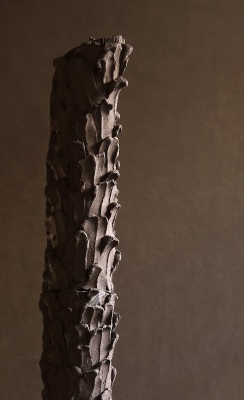Descripción de la Exposición Brazilian society seems to be pressing forward with devouring strength, systematically forgetting the memory of the past. Brazilian artist Rosângela Rennó tries to fight against this collective loss of memory by appropriating found albums and photographs from private and public archives. The use of appropriation to counter the loss of memory is a driving force in the work of Rosângela Rennó. It is a form of fighting collective repression and a future that is void of a past; appropriation is a means of combating emptiness, the vacuum in the kickback of the motor of the future. In her own way Rennó seems to operate as a tracker. This is true of her early work Imemorial, in which she updates portraits of workers who died during the construction of the future-oriented city of Brasilia. In the works Cicatriz (Scar) and Vulgo [Alias] Rennó performs a kind of mental archaeology, in which photographs of former inmates, glass plate images she discovered in the Carandiru jail in São Paulo, are enlarged to an almost painful dimension, so that in looking at the over-sized images we physically sense the coldness of these early formal identity photographs, on the one hand, and the living presence of the individuals (including all their scars, tattoos, imperfections of the skin and stubborn whorls of hair), on the other. Her works can be read as a repositioning of Appropriation Art in a political and cultural context. Tending towards the three-dimensional, the sculptural, and installation, the works suggests Rennó's desire to show this amnesia in the most physical manner possible. Her found objects do not always have an immediately obvious cultural significance; sometimes they are 'merely' Frutos estranhos (Strange Fruits). But they always take the form of politically aware cultural archaeology, inspired by the determined attempt to establish a visual anthropology of Latin America.

Exposición. 17 abr de 2025 - 03 sep de 2025 / Centro Cultural Andratx (CCA) / Andratx, Baleares, España

Formación. 08 may de 2025 - 17 may de 2025 / Museo Nacional Centro de Arte Reina Sofía (MNCARS) / Madrid, España